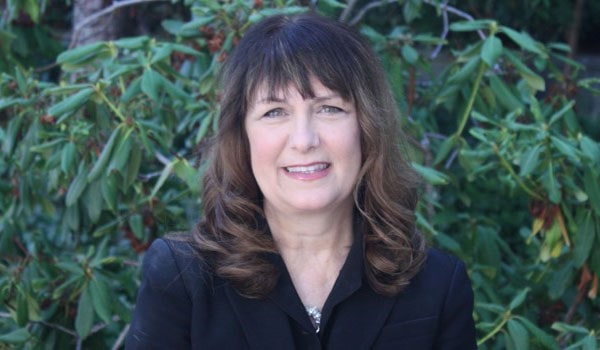
Isabelle, Noah and Tai are adjusting to learning from home. These Georgetown students, in grades 1, 4 and 6, find it easier when their school days can be broken up by different types of learning.
Experts say it’s time to bring social and emotional learning into the home
If you’re wondering whether the kids are all right, it’s a safe bet that many are struggling.
WE has always supported students’ social-emotional health and well-being, but now it has put these concerns at the forefront of its WE Schools @home programming, to support both young people and their parents during this unprece- dented period of change and upheaval.
The pandemic has left our youth stuck at home, missing friends, sports, band practice, prom, freedom. The omnipresent news tallies deaths by the hour while our children huddle over the dining room table figuring out how to learn online. The older kids have to juggle five or six classes, while the younger ones cling to stressed-out parents who are worried about too much work or no work or front-line work.
While children are undergoing a range of experiences during this time, from positive to more challenging, we know that this is an unprecedented situation.
“Children are worried about the here and now of what they are missing out on, but also what this pandemic means for their future, and for the future of the world,” says Dr. Kim Schonert-Reichl, an applied developmental psychologist, a professor at the University of British Columbia and a world-renowned expert in social and emotional learning (SEL). She says young people’s feelings should not be dismissed but acknowledged, and educators and parents need to ensure that children are equipped with the social and emotional learning skills necessary to cope with the new world around them.
Dr. Schonert-Reichl is an adviser for the WE Schools program, which is used by more than 20,000 schools across Canada, the United States and the United Kingdom. She helped the organization craft its free educational resources that bring together social and emotional learning with service learning.
WE Schools SEL programming helps students develop critical social and emotional skills, including:
- Empathy – Students learn to be more socially aware, building respect and understanding for others.
- Communication – Students improve their ability to enjoy positive, healthy relationships with others.
- Collaboration – Students learn how to work together as a group and build skills such as conflict resolution.
- Perseverance – Students learn self-motivation and how to set and work toward goals
Educators use WE Schools resources to integrate SEL into their lesson planning, but parents can also use them to support their children’s learning at home, paying special attention to their well-being. “We know that WE’s resources are based on the most recent science about what we know promotes well-being,” says Dr. Schonert- Reichl. “Many parents don’t know that you can actually promote well-being intentionally, through activities that can be done at home.”
Studies show that SEL equips students with the skills to become caring and responsible citizens. The results are impressive:
- Increased academic achievement – According to a 2011 meta-analysis of 213 studies involving more than 270,000 students, those who participated in SEL programs showed an 11 per cent gain in academic achievement (https://casel.org/what-is-sel/ ).
- Improved behaviour and mental well-being – Studies show decreases in dropout rates, school and classroom behaviour issues, drug use, teen pregnancy, mental health problems and criminal behaviour (https://casel.org/what-is-sel/).
- Support from educators – In 2018, WE Schools surveyed 600 teachers participating in its programs and found that four out of five teachers wanted more support to address students’ social and emotional development.

Dr. Kim Schonert-Reichl is a professor at the University of British Columbia, a world-renowned expert in social and emotional learning, and an advisor for the WE Schools program.
Molly Lawlor has a doctorate in education and is the lead creator of WE Well-being, a program that empowers youth, educators and families through tools and resources to promote their own well-being and the well-being of their community. She is also an expert in social-emotional learning. Dr. Lawlor suggests three things you can do with your child to foster well-being and support social emotional health:
- Gratitude – Regularly share what you’re grateful for as a family, both the big and small things.
- Connection – Find ways to connect with your child, whether it’s through family meals, walks around the neighbourhood or playing a board game together.
- Contribution – Find ways for your child to contribute to your home or community, helping them develop their sense of purpose and competence. It may be helping to make a meal, folding laundry or perhaps a creative idea your child comes up with. According to Dr. Lawlor, research shows that paying children for helping out can undermine their future desire to be helpful.
Says Dr. Schonert-Reichl, “I want parents to know that stress is a contagion. We’re all highly stressed right now, and it can be contagious. We have to think about our own emotions as well. Children look to us to see how we’re handling this unprecedented time. Our own well-being — or stress — is going to filter down to our children.”
Dr. Lawlor adds, “Now is the time for parents to be gentle on themselves and focus on finding moments of connection with their children, in ways that support the well-being of both parent and child alike.”
Free SEL resources can be accessed at www.we.org/SEL
Advertising feature produced by WE. The Globe’s editorial department was not involved.